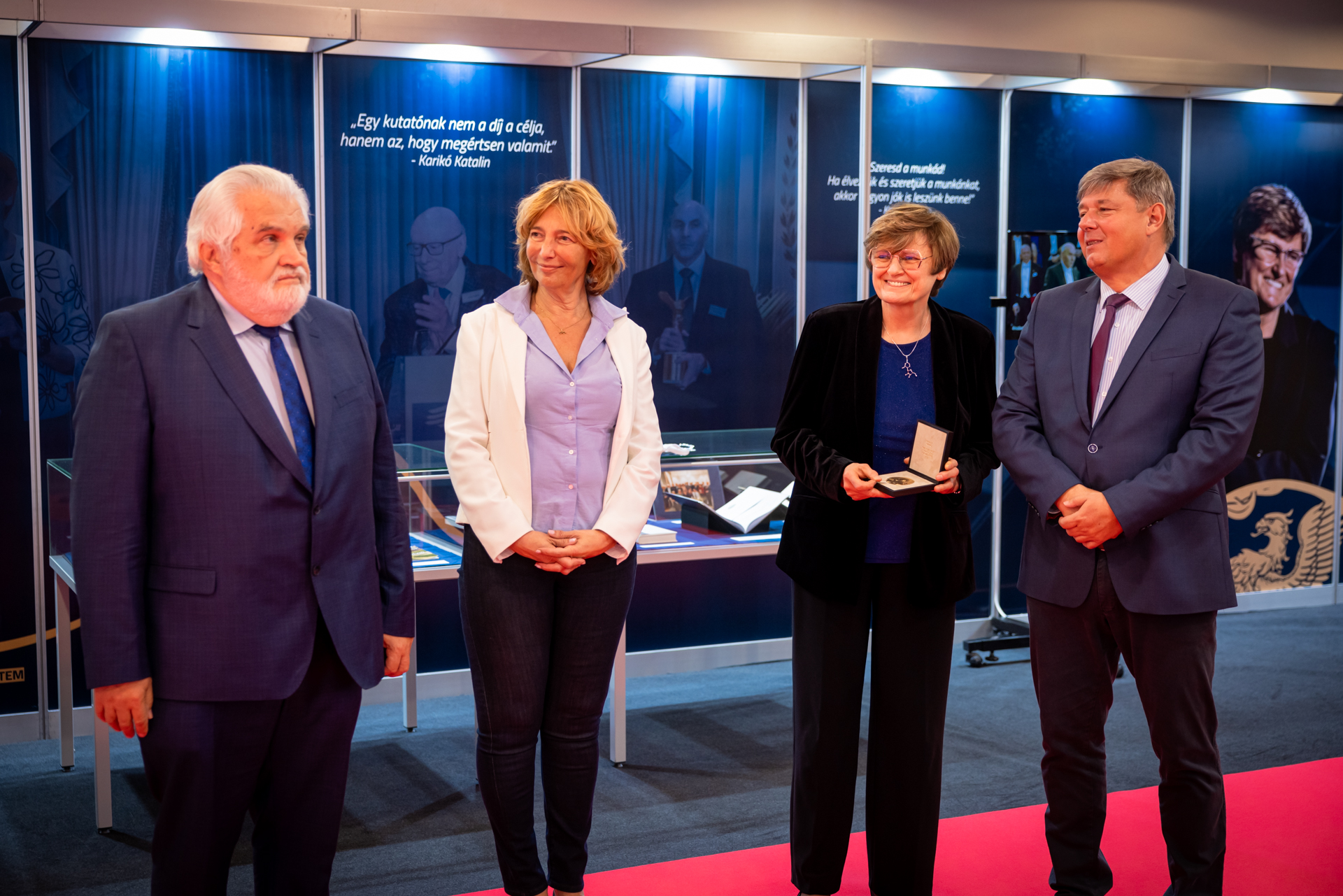
On April 16, 2024, Tuesday morning, Professor Dr. Katalin Karikó announced at the József Attila Department of Education and Information Center (TIK) of the University of Szeged that she has offered her Nobel Prize and the associated prize money of over half a million dollars to the University of Szeged. The research professor at the University of Szeged, also shared her experience on the events preceding the Nobel Prize ceremony and the ceremony itself in Sweden.
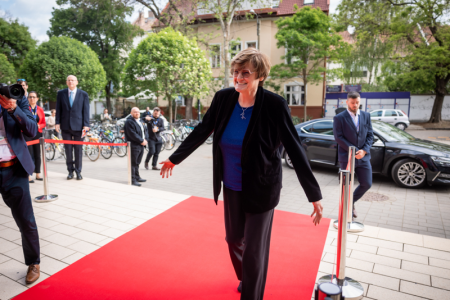 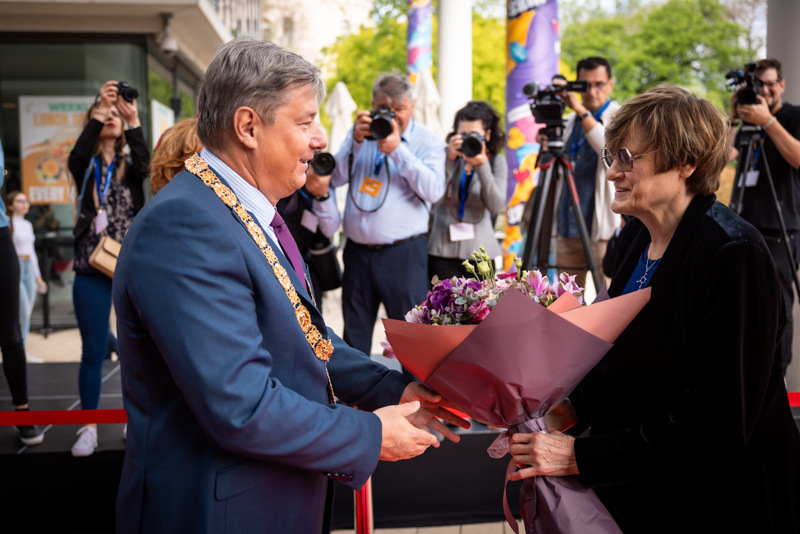 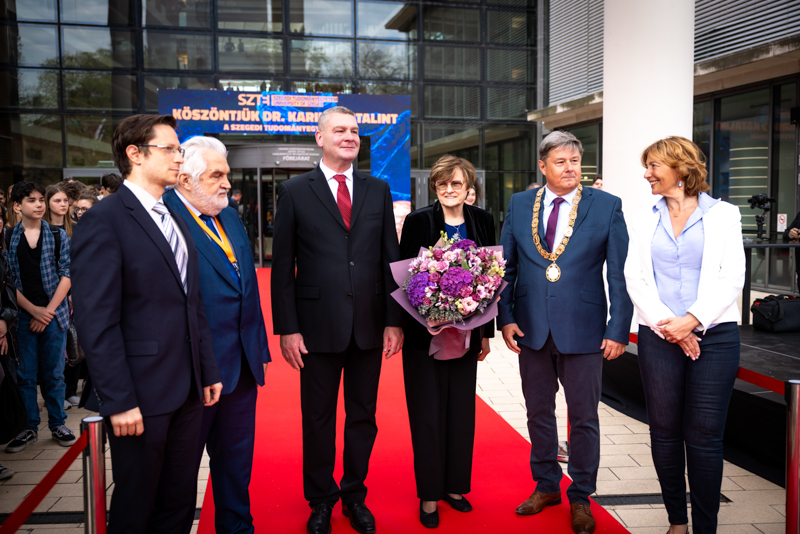 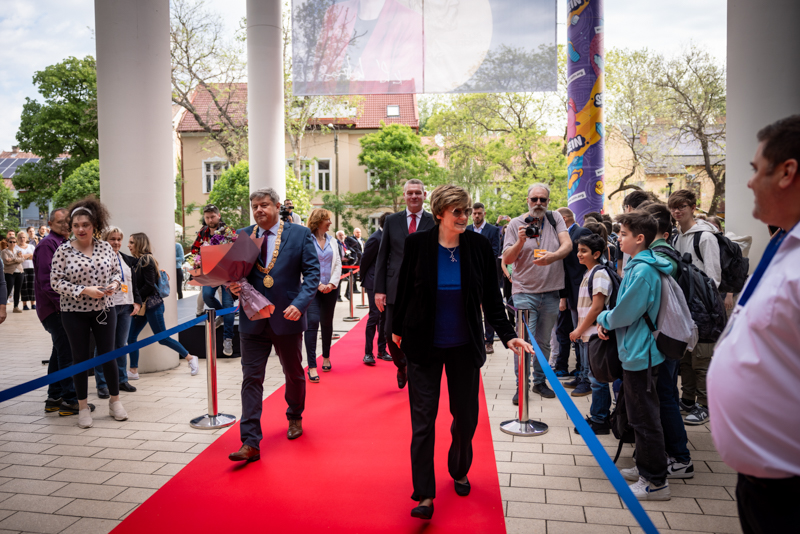 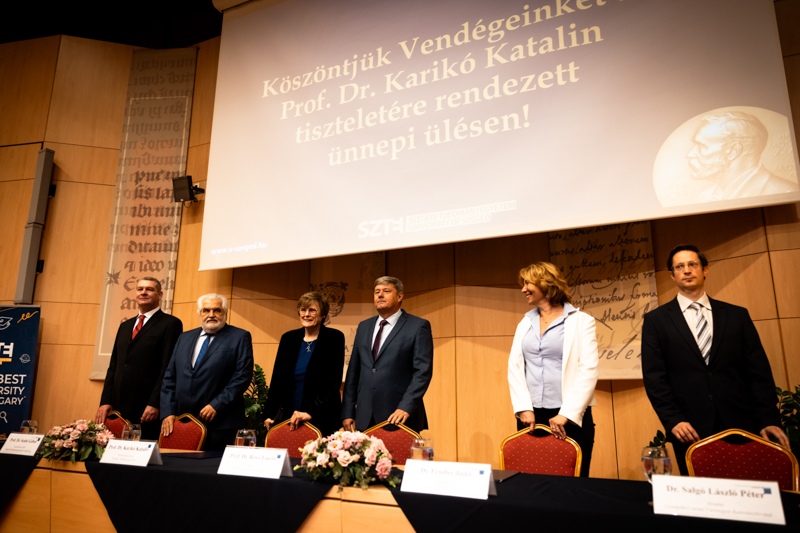 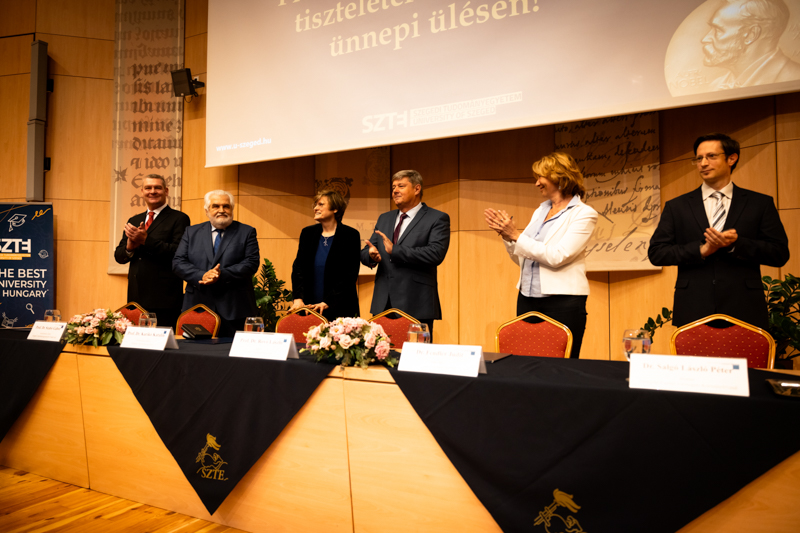 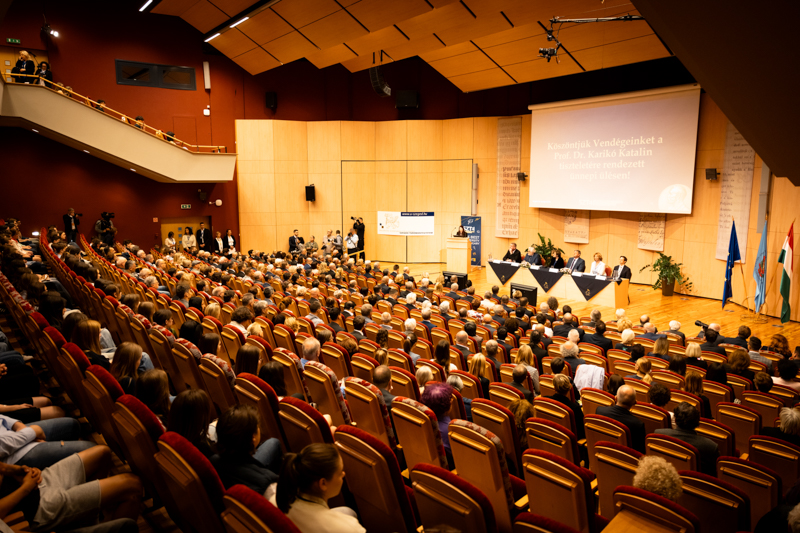 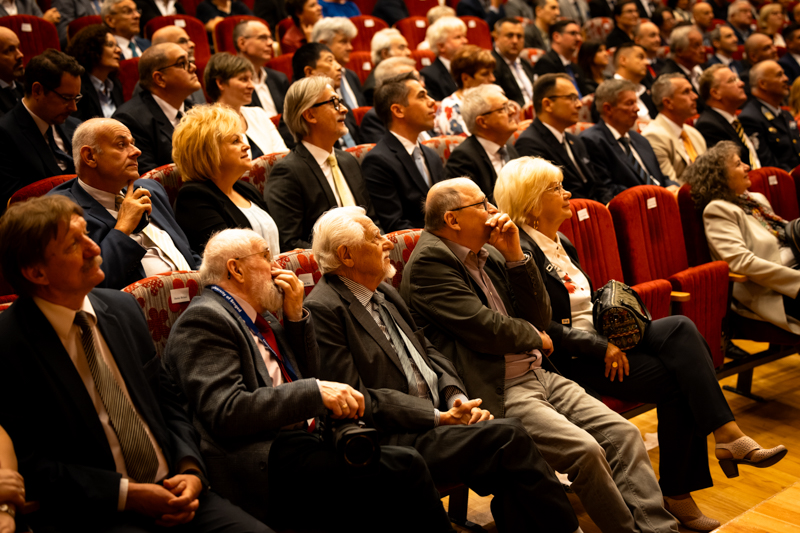 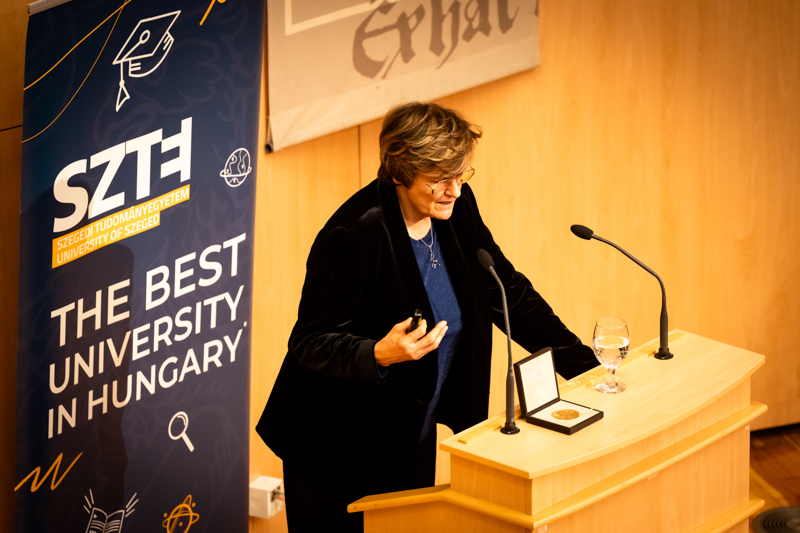 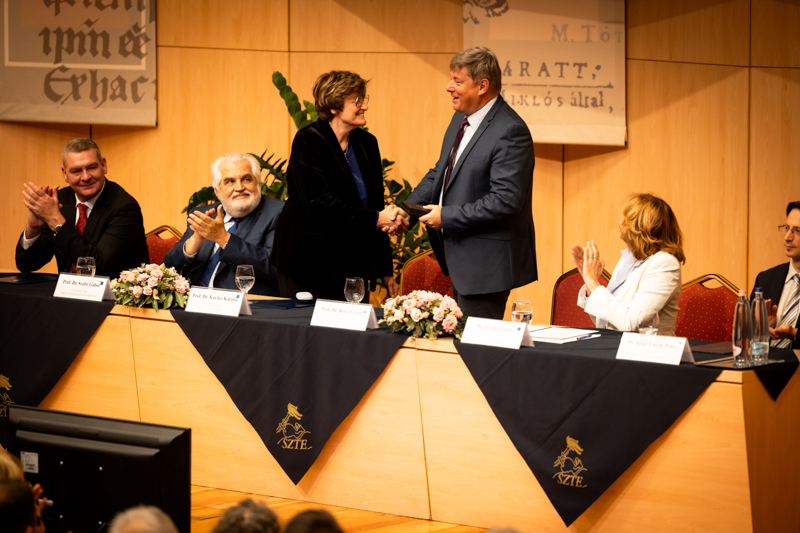 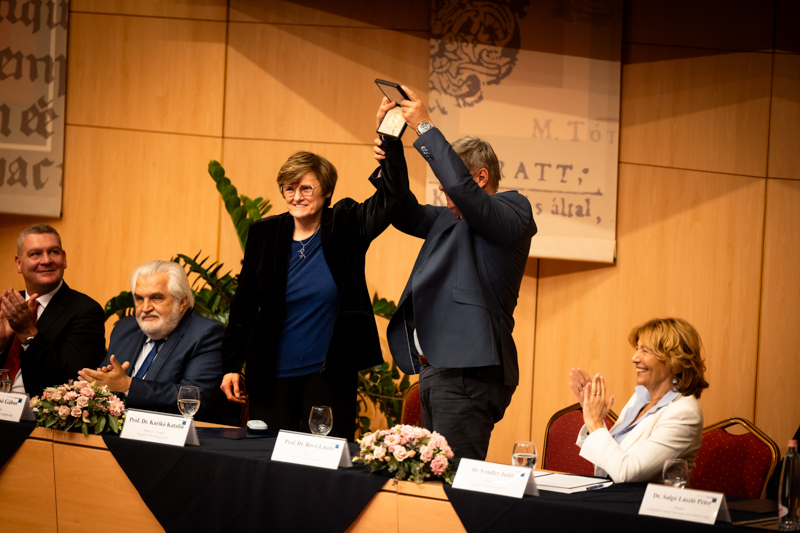 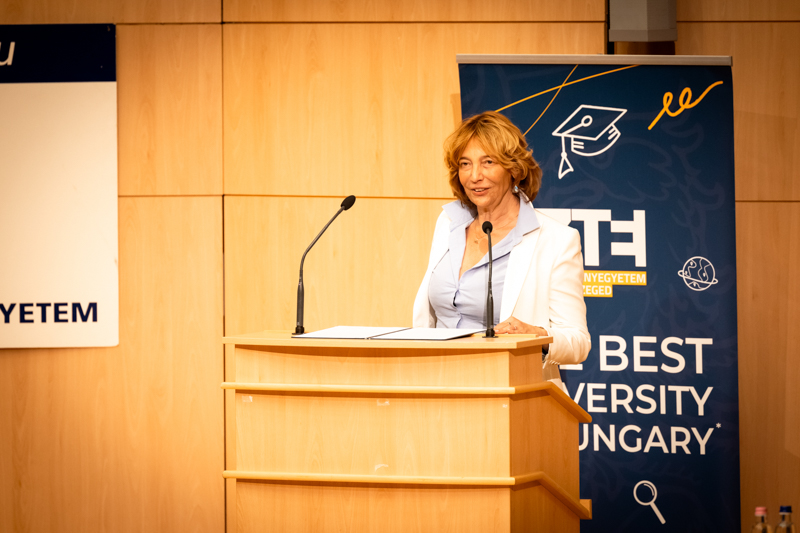 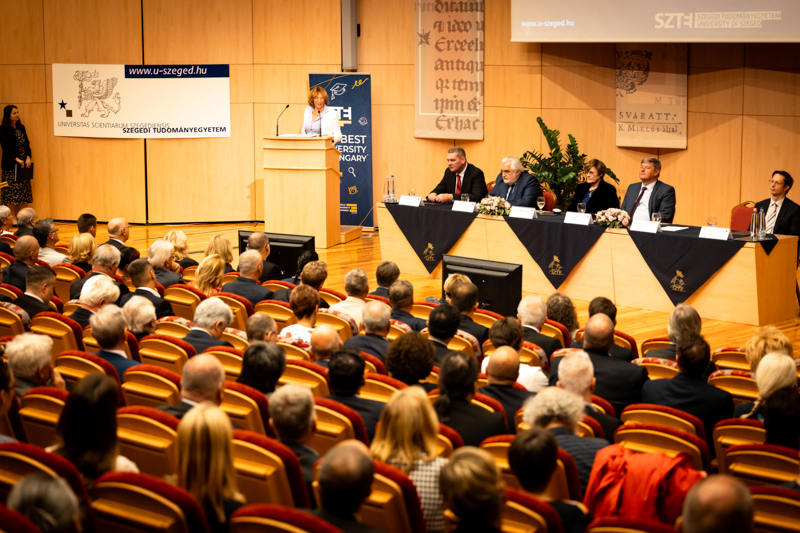 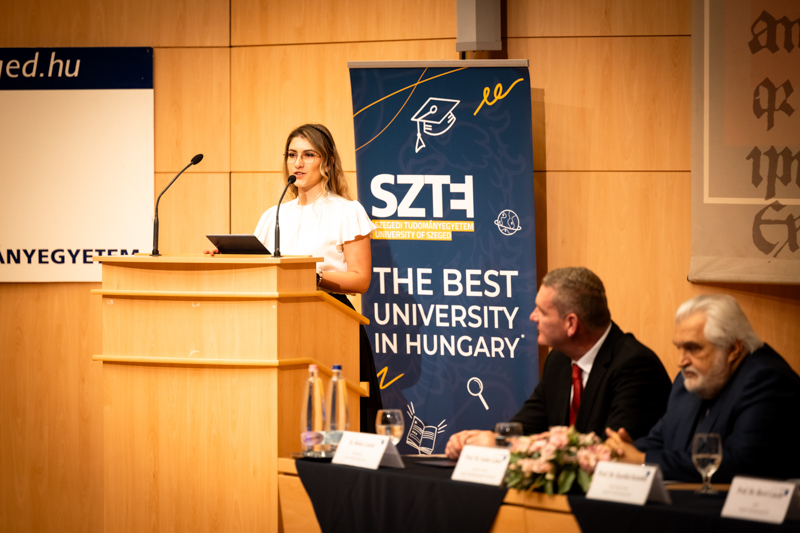 |
| Katalin Karikó, Nobel Prize-winning research professor, arrives at the University of Szeged. Photos by Ádám Kovács-Jerney and István Sahin-Tóth |
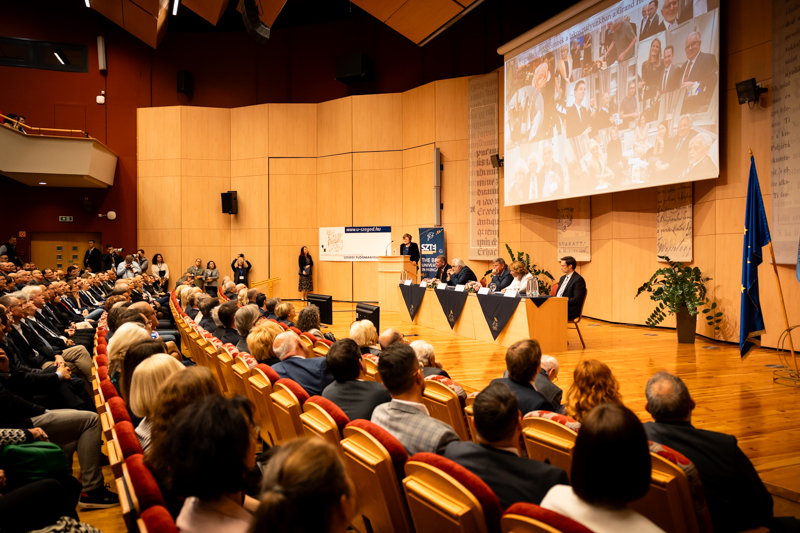
Katalin Karikó delivered a presentation about her experiences in Sweden and the events of Nobel Week at the congress hall of the TIK at the University of Szeged.
In honor of Katalin Karikó, the Szeged University Choir performed Zoltán Kodály's piece titled "Cohors Generosa." The exceptional performance of this piece by the choir, which will celebrate its 100th anniversary next year, brought to mind the grand celebration of April 7, 1938, when Nobel laureate Albert Szent-Györgyi was honored with an honorary doctorate by the University of Szeged. On that occasion, the members of the University Choir formed a guard of honor, and as Szent-Györgyi approached, they celebrated him with a traditional welcoming melody, as noted by the reporter, emphasizing the significance of the moment.
Prof. Dr. László Rovó stated, "The discovery opens up new paths in healthcare."
At the ceremonial session held in honor of the Nobel laureate scientist, Professor Dr. László Rovó, the Rector of the University of Szeged, praised Katalin Karikó.
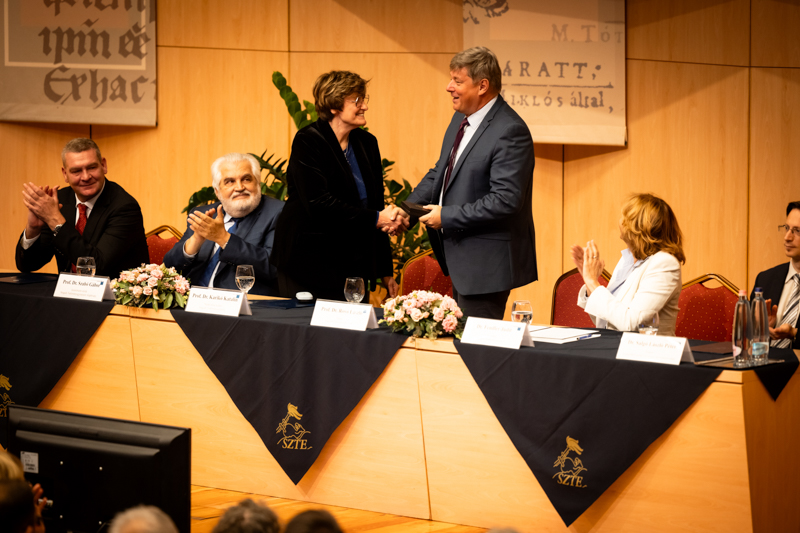
"The importance of this event is well demonstrated by the fact that it has been placed under the patronage of the President of the Republic of Hungary, Dr. Tamás Sulyok himself, who will later personally attend the program. During the Nobel Prize ceremony, the name of a Hungarian university was mentioned in two occasion, both times the University of Szeged, which shows that our university is on the right track. Success stems from the fact that outstanding personalities guided the establishment of the university in Kolozsvár and its relocation to Szeged, and a clear development concept was in place. It is no coincidence that Szent-Györgyi's Nobel Prize is also associated with the University of Szeged, as the decision-makers of that time made substantial resources and excellent personalities available. The result of this effort is also that the Biological Research Centre was also located in Szeged, so things are consequential and interconnected. Just the other day I heard Katalin Karikó say that when she saw this institute she said that she wanted to work here. The University of Szeged is therefore characterised by a strength based on a structure that is hundreds of years old, interconnected and extends far beyond the borders of the country. This reconnection also happens in practice, as Katalin Karikó has offered numerous awards to the university and supports infrastructural development. The discovery for which the Nobel Prize was awarded opens up new avenues in healthcare, fundamentally making treatments faster, more efficient, and more humane. I would like to emphasize that two things come together here: excellent infrastructure and excellent personality. I say to our students, recognize this excellent personality within yourselves because, as you can see, if you graduate from the University of Szeged, you have the opportunity, with a little luck, to achieve anything.” - Said the Rector, who also gave a university robe to Katalin Karakó, to complement her study room that was previously used by Szent-Györgyi.
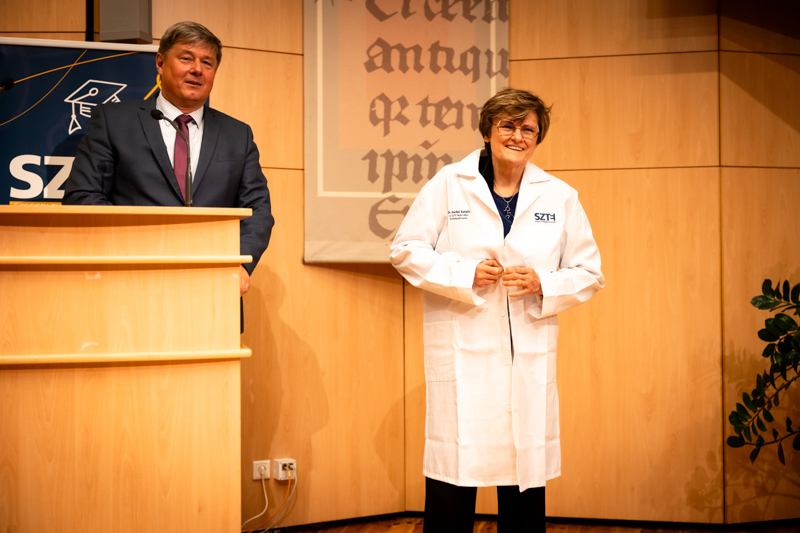
"Offering support for the most outstanding students and educators"
During her latest visit to Szeged in October 2023, Katalin Karikó promised to bring her Nobel Prize to the University of Szeged. She gifted an authentic replica of the medal to her alma mater, the University of Szeged, and placed it on permanent display in the exhibition that can be found on the ground floor area of the Klebelsberg Kuno Library. At the opening ceremony of the exhibition held in the congress hall of the TIK at the University of Szeged, Katalin Karikó shared her experiences from the Nobel Week in Stockholm. She made her account memorable with personal anecdotes, photos, and her unique, personal style. In her presentation, she recounted her experiences during the Nobel Week, including scientific lectures in Sweden, receptions and meetings with the Swedish royal family. At the end of her presentation, she announced that she had brought the authentic replica of her Nobel Prize and offered it to the University of Szeged, along with over half a million dollars in prize money, to support outstanding educators and students.
"I would like to share this award with the next generation."
- "We really enjoyed these 10 days, and my guests also had a great time. It was incredible. I'm not really into awards and honors; I got along just fine without them for forty years. But I had to recognize that the essence of awards is to shine a light on science, on researchers, and that's what needs to be emphasized. Many people worked on this vaccine alongside me and before me, some of whom are no longer with us, and I accept these awards on their behalf as well. That's why I would like to share both the award and the prize money received for it with the future generation, those who are sitting up there." - Pointing to the young people sitting on the gallery and referring to the university students present, said Dr. Katalin Karikó, the Nobel laureate research professor at the University of Szeged.
Dr. Judit Fendler: "This gesture is reminiscent of that of István Széchenyi."
Dr. Judit Fendler, the Chancellor of the University of Szeged, described the offering as being of similar significance to István Széchenyi's announcement in 1825.
"Driven by inner conviction, he contributed from his own wealth to a cause that serves the nation's upliftment. I believe it's not the amount, but the gesture itself that calls us to follow suit. I don't think it's an exaggeration to compare today's gesture to Széchenyi's, especially since in 1828, almost prophetically, he wrote about Katalin: 'The determined will, and especially perseverance, the rarest virtue, make everything possible, achieve every goal, triumph over all obstacles.' Széchenyi's donation of 60,000 forints in 1825 was supplemented by a further quarter of a million forints from the contemporary elite. I hope that the elite of the 21st century will follow Katalin's gesture. Szeged has long been on Europe's university map, and in recent years, it shines brighter than ever. We are proud of Katalin Karikó as one of the strongholds of Hungarian science. What particularly delights us is that during her stay in Szeged, Professor Karikó takes the time to meet with our researchers or present awards to the most creative university students in our competitions. At the University of Szeged, knowledge and creativity converge; our citizens firmly believe that the power of science can bring about change in the world. It can make our everyday lives increasingly safer and more comfortable, and make the future more predictable and manageable both individually and collectively. In this regard, Katalin Karikó has been at the forefront, and we thank her!" - Said the Chancellor.
SZTE Info
Photos by Ádám Kovács-Jerney and István Sahin-Tóth.

